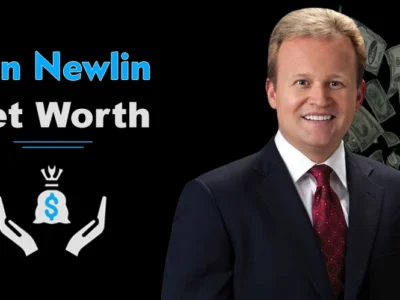Growing up, I had the privilege of receiving invaluable advice from a millionaire I admired. His wisdom has stuck with me through the years, and it’s the best piece of financial advice I’ve ever heard: “Don’t worry about earning millions; instead, focus on the first $100,000 because, after that, your net worth will go crazy.”
Building High Net Worth

Building high net worth is the process of accumulating substantial wealth over time through strategic financial planning, investment, and disciplined savings. It’s about more than just earning a high income; it’s about effectively managing your finances, making sound investment decisions, and minimizing expenses.
Key Components of Building High Net Worth
- Income Generation: Earning a substantial income is foundational to building wealth. This can be achieved through high-paying jobs, entrepreneurship, or multiple income streams.
- Asset Accumulation: Acquiring assets like real estate, stocks, bonds, and businesses can significantly increase your net worth.
- Debt Management: Minimizing debt, especially high-interest debt, frees up cash flow for investment and savings.
- Savings and Investment: Consistently saving and investing a portion of your income is crucial for long-term wealth growth.
- Risk Management: Protecting your assets through insurance and diversification is essential to mitigate financial losses.
- Tax Optimization: Understanding tax laws and strategies can help you maximize your after-tax income.
- Lifestyle Management: Balancing spending and savings while maintaining a desired lifestyle is key to sustainable wealth building.
The Role of Mindset
Building high net worth often requires a shift in mindset. It involves:
- Long-term perspective: Focusing on financial goals beyond short-term gratification.
- Discipline: Consistently adhering to a financial plan despite temptations.
- Risk tolerance: Understanding your comfort level with investment risk and making informed decisions.
- Continuous learning: Staying updated on financial trends and investment strategies.
High Net Worth Individuals (HNWIs)
Individuals with a high net worth typically possess a combination of these characteristics:
- Multiple income streams: Diversified income sources beyond employment.
- Strategic investments: A well-balanced investment portfolio that generates substantial returns.
- Business ownership: Often have their own businesses or significant ownership in companies.
- Real estate investments: Owning properties that appreciate in value and generate rental income.
- Financial planning: Employing professional financial advisors to manage their wealth.
- Tax optimization: Implementing strategies to minimize tax liabilities.
The Challenge of the First $100K

Earning Power
The first reason the initial $100K is the hardest is due to your earning power. Think of it like a video game level—you’re still building your skills and can’t compete with the more experienced players. This is especially challenging for younger generations.
A recent study found that GenZ has about 86% less buying power than Boomers of the same age. This is partly due to older people staying in the workforce longer, making higher-paid positions harder.
However, it’s not all doom and gloom. The internet offers a fantastic opportunity for younger people to make money. Most older generations don’t understand how to leverage platforms like Instagram or build an online side hustle. When it comes to tech, few Boomers can keep up with the digital natives.
Lack of Compound Interest
The second reason the first $100K is the hardest is the lack of compound interest. Think of your money like a snowball. As you invest, your money picks up more “snow” (compound interest). The bigger your snowball, the more compound interest it collects. However, if your snowball isn’t giant enough, it won’t generate significant income.
For example, if you invest $10K in an S&P 500 Index fund with a 7% annual return in five years, your investment will grow to $14,176. That’s only a $4,176 gain in five years. This is why reaching the first $100K is tough—it’s more about how much you can contribute to your investment pot than how much compound interest you earn.
Why Net Worth Explodes After $100K
The concept of net worth taking off dramatically after the $100,000 mark might seem counterintuitive. However, several key factors contribute to this phenomenon:
The Power of Compound Interest
- Exponential Growth: Compound interest is the interest earned on both the principal amount and the interest previously earned. While it works at all investment levels, its impact becomes exponentially more significant with larger sums.
- The Snowball Effect: As your investment grows, so does the amount of interest earned. This creates a compounding effect, accelerating wealth accumulation.
Once you hit $100K, compound interest starts working magic. If you invest $10K annually at a 7% return, reaching $100K takes about 7.84 years. However, going from $100K to $200K only takes 5.1 years.
The next $100K is 35% faster to accumulate, and it keeps accelerating from there. The chart below illustrates this exponential growth, showing how the process speeds up after the first $100K.
Increased Investment Options
- Access to Higher-Yield Investments: With a larger capital base, you can invest in options that were previously inaccessible, such as:
- Real estate investments
- Venture capital
- Angel investing
- Hedge funds These investments often have higher potential returns, but also come with higher risks.
- Diversification: A larger portfolio allows for greater diversification, reducing overall risk.
Psychological Impact
- Investor Confidence: Reaching the $100,000 mark can boost investor confidence, leading to more aggressive investment strategies and potentially higher returns.
- Reduced Financial Stress: With a substantial financial cushion, you’re less likely to make impulsive financial decisions driven by fear or desperation.
Lifestyle Changes
- Ability to Take Risks: A larger net worth provides a safety net, allowing you to take calculated risks in business or investments.
- Time Freedom: As your investments generate income, you may have the option to reduce working hours or retire early, freeing up time to focus on wealth-building activities.
Leveraging Your Wealth
- Business Opportunities: A larger net worth can provide the capital needed to start or expand a business.
- Real Estate Investments: Purchasing rental properties or commercial real estate can generate passive income and appreciate in value.
It’s essential to remember that while the $100,000 mark can be a significant milestone, it’s not a guaranteed path to wealth. Consistent saving, investing, and financial discipline are crucial factors in achieving long-term financial success.
Cracking the Code to Your First $100K

The path to financial independence is often paved with misconceptions and challenges. One of the most pervasive myths is the need to accumulate millions before experiencing financial freedom. In reality, the cornerstone of substantial wealth often lies in achieving that initial $100,000.
To make your first $100K, follow the Growth Method:
G: Gain Control of Your Finances
Start by budgeting. Budgeting isn’t about restricting fun; it’s about making informed choices. Understand the difference between your needs and wants.
R: Root Your Investments
Invest regularly. For example, if you invest $250 a month in an S&P 500 Index fund at a 7% return, in 40 years, you’ll have $656K, with $536K coming from compound interest.
O: Optimize Your Tax Management
Avoid paying unnecessary taxes through legal tax avoidance strategies, such as deducting business expenses.
W: Weed Out Debts
List all your debts and prioritize them by interest rates. Tackle the highest-interest debts first to prevent them from hindering your financial progress.
T: Tap Into Additional Streams of Income
Start a side hustle. As of 2023, 50% of Americans have a side hustle, even those earning over $100K annually. Side hustles provide additional income to invest.
H: Heightened Self-Discipline
Discipline is key to implementing these strategies. The more disciplined you are, the faster you’ll achieve your financial goals.
Income Generation: The Cornerstone of Wealth
Diversifying income streams is a cornerstone of financial independence. While traditional employment offers a stable foundation, exploring additional revenue channels can significantly accelerate wealth accumulation.
Side Hustles: Cultivating Multiple Income Streams
Side hustles provide flexibility and can serve as a testing ground for entrepreneurial endeavors. Consider these avenues:
- Online platforms: Leverage digital marketplaces like Upwork, Fiverr, and Etsy to offer your skills or products.
- Freelancing: Capitalize on your expertise by offering freelance services in writing, editing, graphic design, or other areas.
- E-commerce: Explore the world of online retail by selling products on platforms like Amazon, eBay, or your own website.
- Rental income: Generate passive income through property rentals or real estate investment trusts (REITs).
- Consulting: Share your knowledge and experience by offering consulting services to businesses or individuals.
- Content creation: Build an audience on platforms like YouTube, TikTok, or blogging and monetize through advertising, sponsorships, or digital products.
Entrepreneurship: Building Your Own Business
For those with an entrepreneurial spirit, starting a business can be a rewarding path to financial freedom.
- Market research: Identify a niche or gap in the market that your business can fill.
- Business planning: Develop a comprehensive business plan outlining your goals, target market, and financial projections.
- Brand building: Create a strong brand identity that resonates with your target audience and differentiates your business.
- Financial management: Establish effective financial systems for tracking income, expenses, and profitability.
- Team building: Surround yourself with talented individuals who can contribute to your business’s success.
- Continuous innovation: Stay ahead of the competition by adapting to market trends and customer needs.
Investment Income: Growing Your Wealth Over Time
Investing your earnings wisely is crucial for long-term financial growth. Consider these investment vehicles:
- Stocks: Invest in individual companies or stock funds for potential capital appreciation.
- Bonds: Generate steady income through bonds, which represent debt obligations issued by corporations or governments.
- Real estate: Explore property investment, including rental properties, real estate investment trusts (REITs), or crowdfunding platforms.
- Retirement accounts: Maximize contributions to tax-advantaged retirement accounts like 401(k)s and IRAs.
- Diversification: Spread your investments across different asset classes to manage risk and optimize returns.
The Importance of Financial Education
Continuous learning is essential for making informed financial decisions.
- Stay informed: Keep abreast of economic trends, market fluctuations, and investment strategies.
- Seek professional advice: Consult with financial advisors to gain personalized guidance.
- Develop financial literacy: Understand key financial concepts like budgeting, saving, investing, and debt management.
By combining these strategies and prioritizing financial education, you can build a solid foundation for long-term financial success. Remember, consistency and discipline are key to achieving your financial goals.
Financial Literacy: Your Compass to Wealth

A strong foundation in financial literacy is essential for navigating the complex world of money management. It empowers you to make informed decisions, avoid common pitfalls, and achieve your financial goals.
Understanding the Basics
- Budgeting: Create a realistic budget to track income and expenses, identify spending patterns, and allocate funds towards savings and goals.
- Saving and investing: Establish an emergency fund and explore various investment options to grow your wealth over time.
- Debt management: Prioritize debt repayment, understand interest rates, and develop strategies to become debt-free.
- Credit scores: Learn how credit scores are calculated and how to improve your creditworthiness.
- Retirement planning: Determine your retirement goals and create a plan to achieve financial security in your later years.
- Tax planning: Understand tax laws and deductions to optimize your tax liability.
Continuous Learning
The financial landscape is constantly evolving, making lifelong learning crucial.
- Stay informed: Follow financial news and trends to stay updated on market conditions and investment opportunities.
- Seek professional advice: Consult with financial advisors to get personalized guidance based on your specific situation.
- Utilize online resources: Explore websites, blogs, and podcasts that offer financial education and tips.
- Join financial communities: Network with like-minded individuals to share knowledge and experiences.
Overcoming Common Financial Mistakes
- Avoid impulse buying: Practice mindful spending and resist the urge to make unnecessary purchases.
- Beware of debt traps: Understand the consequences of high-interest debt and prioritize repayment.
- Diversify your investments: Spread your risk across different asset classes to protect your portfolio.
- Guard against fraud: Be vigilant about scams and protect your personal information.
- Create an emergency fund: Build a financial cushion to cover unexpected expenses.
By mastering these fundamental principles and adopting a proactive approach to financial management, you can build a strong financial foundation and work towards achieving your long-term goals.
Conclusion: The Best Advice for Building High Net Worth
Reaching your first $100K is challenging but incredibly rewarding. Once you hit this milestone, your net worth can grow exponentially thanks to compound interest. Following the Growth Method can accelerate your journey to financial freedom. If you’re ready to start building your wealth from $0, subscribe to stay updated on more financial tips and strategies.
Discover more from Digital Wealth Guru
Subscribe to get the latest posts sent to your email.










Comments